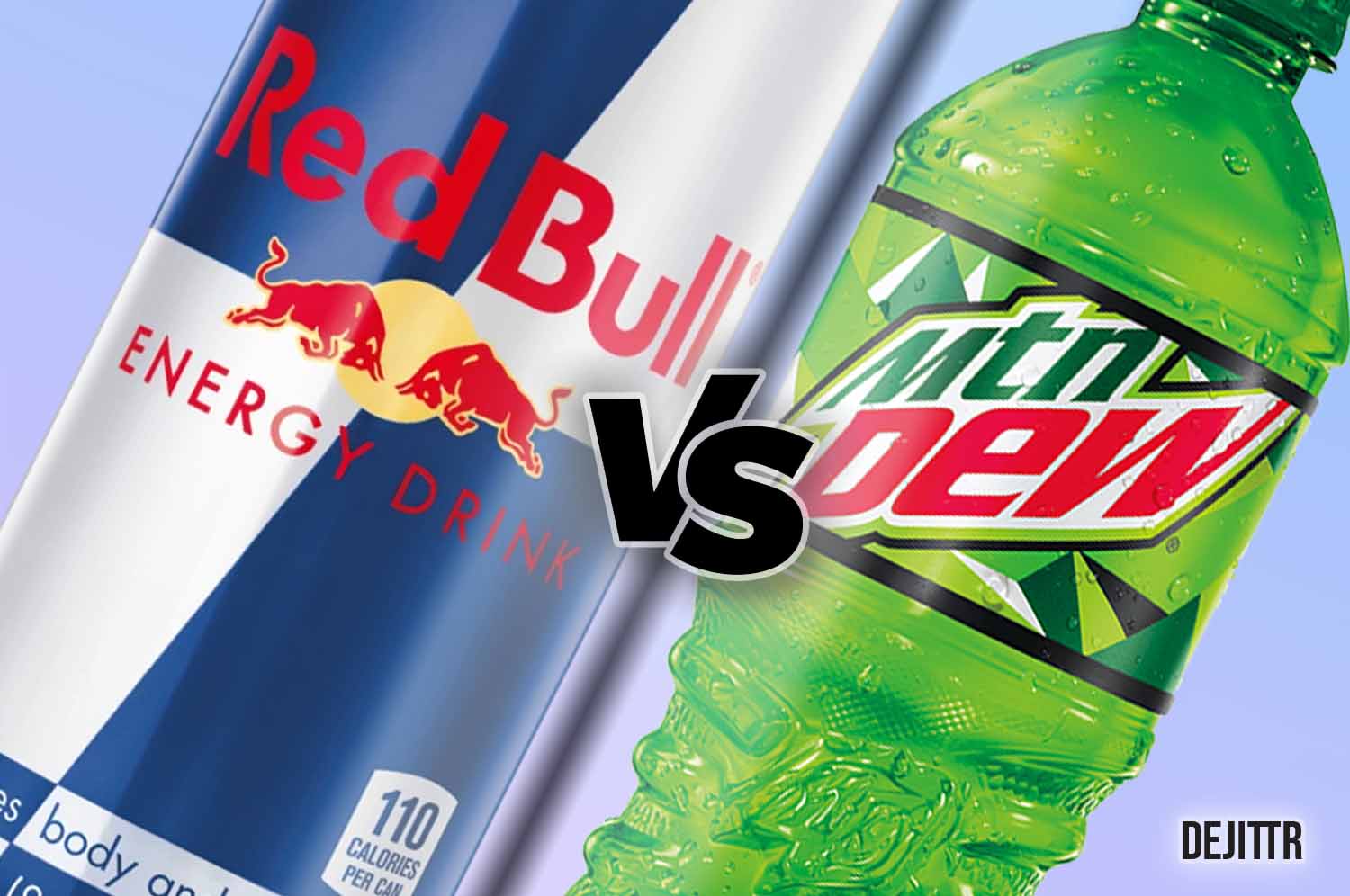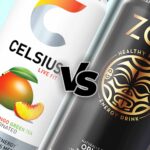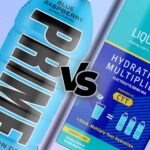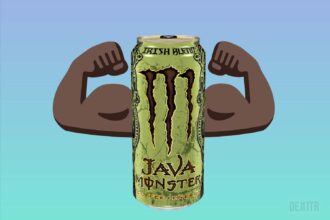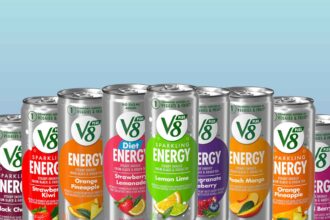When it comes to getting a boost of energy, almost nothing beats the quick effects of energy drinks and sodas to perk you up and get you through your day. This makes them very popular options for those looking to get some energy on the go.
Two of the most common beverages that are marketed as energy boosters are Red Bull, and Mountain Dew. Like all things, we always want to buy things that are the best value for us.
Key Takeaways:
But for all intents and purposes, Mountain Dew is a soda, while Red Bull is an energy drink that contains higher amounts of caffeine, and the main focus is to provide a boost of energy and alertness.
Which one is better, or which one is best for you? Let’s find out.
An Overview of Red Bull
Although it is banned in a few countries, there’s a high chance you won’t find many people who haven’t heard of Red Bull. With a market share of 38% in the energy drink industry, this Austrian company is truly a household name. In fact, they’ve sold 100 billion cans since 1987.
Like most other energy drinks, Red Bull contains ingredients such as taurine, B vitamins, Sugar, and caffeine, with the last ingredient being the key component that provides the much-needed energy-boosting properties.
Here are the ingredients found in a single can of Red Bull:
- Niacin (Vitamin B3)
- Pantothenic Acid (Vitamin B5)
- Vitamin B6
- Vitamin B12
- Taurine
- Caffeine
- Sugar Beet (sweetener)
- Natural and Artificial colors and flavors
Pros and Cons of Red Bull
Here are the pros and cons of Red Bull:
- Pros
- The stimulating effects of Red Bull comes from the 1000mg of Taurine found in its formulation, which provides energy but does not has side effects like restlessness that caffeine does
- It is a trusted household brand
- Cons
- Red Bull is high in sugar, at 27g per serving
- It also has high caffeine, at 80g
An overview of Mountain Dew
Mountain Dew is a highly popular soda drink and has been marketed heavily as a beverage sports drink that athletes of extreme sports like skateboarding and mountain biking prefer to drink during their intense activities.
It is also popular with gamers who swear by it as an energy-boosting drink.
It is the fourth most popular soda and has a six to seven percent market share in the commercial beverage industry. While it is highly caffeinated like most other energy drinks (with the exception of Red Bull), Mountain Dew is still classed as a soda.
Its fresh, tangy citrus taste and fizzy texture have made it a popular drink – however, it does contain artificial food coloring: a synthetic food dye called tartrazine, better known as Yellow 5.
Here is the list of ingredients found in Mountain Dew.
- Carbonated Water
- Sugar
- Flavorings
- Caffeine
- Stabilizers (Gum Arabic)
- Yellow 5
- Citric Acid
Pros and Cons of Mountain Dew
- Pros
- It is a citrus-based drink that is very tasty and refreshing
- It has 54g of caffeine per serving, lower than Red Bull
- Cons
- It is very high in sugar, at 46g as compared to Red Bull at 27g
- It has 170 calories compared to Red Bull at 110 calories
Energy Drinks vs. Sodas
There isn’t really that much difference when it comes to comparing Energy Drinks vs. Sodas. Although they may be found in different sections in the supermarket or your local store, both options are high in sugar and caffeine, which is not good for you when consumed in excess amounts.
On the bright side, both of these beverages help improve your mood, and increase mental alertness, concentration, reaction time, and physical performance, which is why athletes drink them before exercise to get maximum output from their workouts.
However, the biggest difference between the two is probably the use of high fructose corn syrup for sodas, vs. regular sugar or artificial sweeteners for energy drinks.
But though they may have different names, they are almost identical to each other if we compare the chemical compounds in both HFCS and Sugar.
Mountain Dew’s energy drink
You might be surprised to learn Mountain Dew has been in the energy drink market since 2001.
Although you may not commonly see it on the shelves beside some of your favorite energy drinks, you can find them on Amazon.com.
Mountain Dew AMP or Mountain Dew Energy VP
Red Bull or Mountain Dew – Which one is better for me?
Generally, the big difference between Red Bull and Mountain Dew is down to the taste.
While Red Bull has a slightly acquired taste for those who have yet to try it, Mountain Dew is a straightforward, citrusy, and tangy fizzy soda that is sweet. However, that comes with high sugar content, as is the case for most sodas like Pepsi or Coca-Cola.
Speaking of Pepsi, Mountain Dew is one of the many brands owned by the PepsiCo conglomerate.
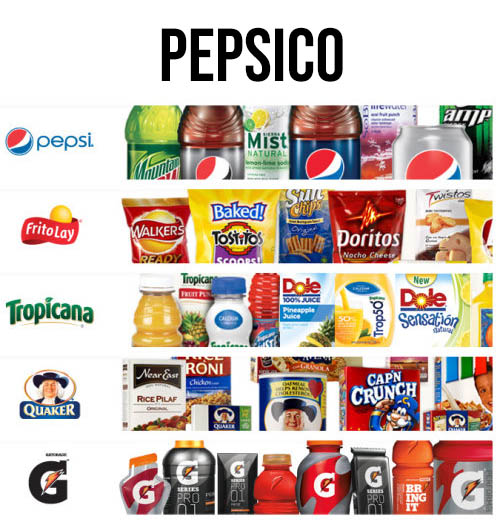
Red Bull has less sugar, but a higher caffeine content than Mountain Dew. Too much caffeine in your diet may lead to unwanted side effects such as headaches, dizziness, restlessness, and insomnia.
However, these side effects only happen if you drink in excess, for example, two or more cans in a day.
If you’re counting calories, the lower calorie option is Red Bull, which has 110 calories as compared to Mountain Dew at 170 calories.
The serving sizes of both beverages are also different, with Red Bull coming at an 8.4g serving size can while Mountain Dew comes in 12 oz. cans.
Conclusion
Like most things, consuming anything in excessive amounts will surely lead to problems and unwanted side effects, and in the case of energy drinks or sodas, this is no different.
Sodas like Mountain Dew contain high amounts of sugar thanks to the high fructose corn syrup used to sweeten it, while Energy Drinks like Red Bull have high concentrations of caffeine that gives it its energy-boosting properties.
If you’re caffeine sensitive, then Mountain Dew is probably the better option due to its lower caffeine levels – but you’re making up for that by consuming more sugar.
Both options can be easily found wherever you are, at a local store, gas station, or supermarket, so you can have a quick pick-me-up anytime, you need it.


